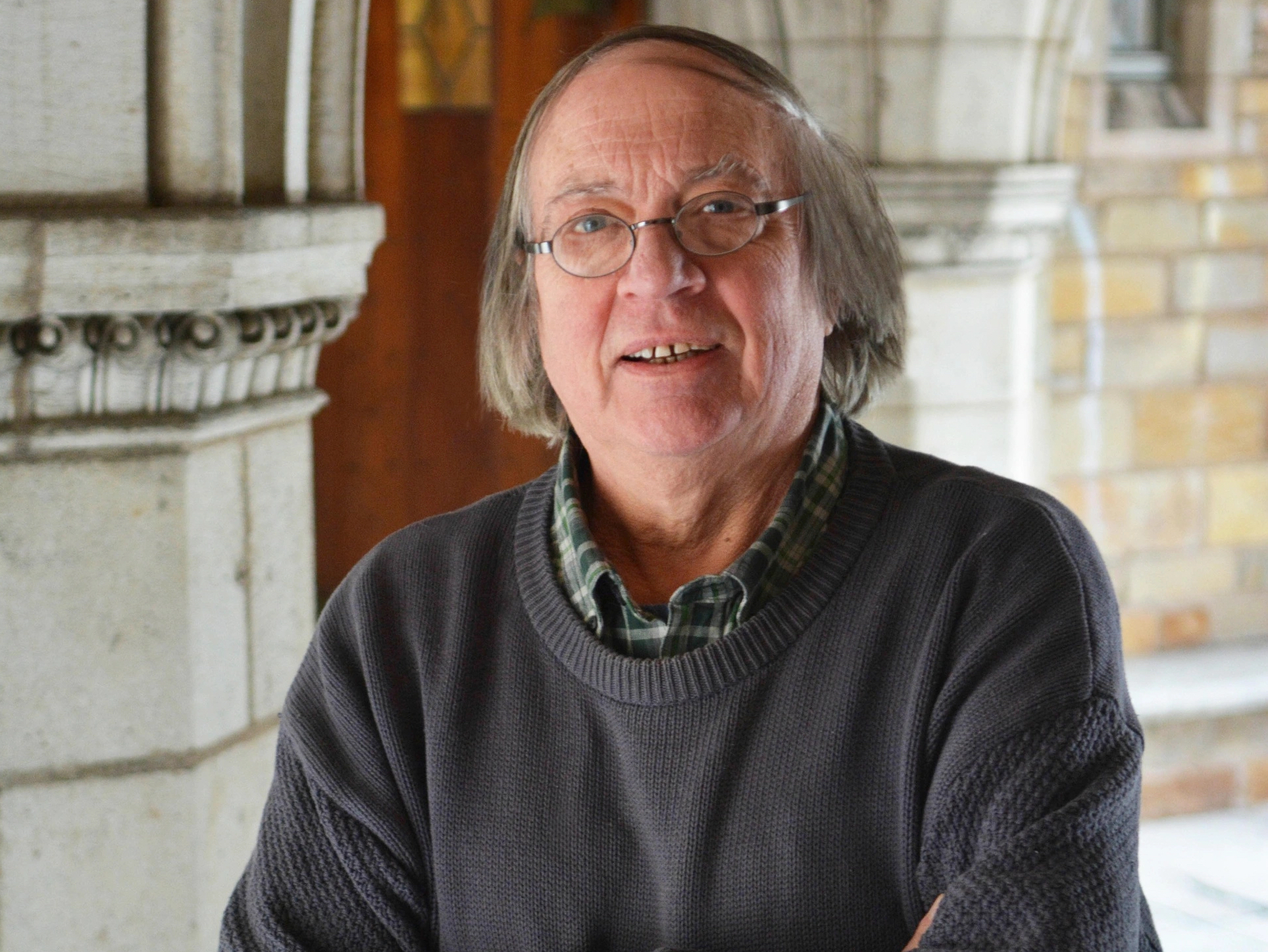John Merriman, history professor known for animated lectures, dies at 75
John Merriman, who spent much of his career researching and teaching modern French history at Yale, passed away earlier this year.

Yale News
John M. Merriman, history professor and former head of Branford College, died earlier this year. He was 75.
Merriman, beloved by his colleagues and the many students whom he taught and mentored during his 50-year tenure at the University, spent his entire professional career at Yale. He first came to Yale as an assistant professor in 1973 and remained at the University until his passing in May.
Merriman became something of a local celebrity for the way he enlivened his lectures on French and European history with detailed storytelling. Merriman was a colorful character outside the classroom, too.
“I was always amused by the way he would insert French words or phrases into whatever he was saying at department meetings,” history and religious studies professor Carlos Eire said. “I couldn’t tell if he assumed that everyone in the room knew French or if this was some kind of joke, or a test of our collective erudition. Whenever he started speaking I would wait for something in French to pop up, and, voilà, without fail, there it would be, hovering above everyone’s heads, like some exotic butterfly suddenly released from captivity.”
Merriman was born in Battle Creek, Michigan on June 15, 1946. His mother, Sally Mustard, was a painter, and he never knew his father, who was divorced from Mustard when Merriman was still an infant. Merriman grew up in Portland, Oregon, and later attended the University of Michigan, where he obtained his B.A. in 1968 and his Ph.D. in 1972. It was during that time when Merriman began developing what would become a life-long passion for French culture and history.
Soon thereafter, Merriman came to Yale. During his nearly five decades at the University, he was popular with students, and received two undergraduate teaching awards over the years — the Harwood F. Byrnes-Richard B. Sewall Prize for Teaching Excellence in 2000 and the Phi Beta Kappa Devane Medal for excellence in teaching and scholarship in 2019. Merriman also received the Lifetime Achievement Award for Scholarly Distinction from the American Historical Association in 2017 in recognition of his contributions to the discipline.
Merriman also served as the seventh head of Branford College in 1983. He served for eight years and stepped down in 1991.
His students remembered him as a vibrant character who delivered lively and humorous lectures.
“He’d walk in with a few crumpled pieces of paper, walk back and forth, jump from one subject to another, and after two or three hours you’d really gotten somewhere,” former student and later history professor Judith Coffin told the New York Times. Author Ta-Nehisi Coates, who watched Merriman’s lectures online, observed to the Times that he resembled a “freestyle rapper” when he was teaching.
Merriman’s online courses in the Open Yale Courses project — “European Civilization, 1648-1945” and “France Since 1871” — reached thousands of students all over the world. They were recorded in fall 2007 and 2008, respectively, and have been available for free on the OYC website since then.
Merriman was also a prolific historical writer. His books include The Dynamite Club: How a Bombing in the Fin-De-Siecle Paris Ignited the Age of Modern Terror (2009) about the French Anarchist Emile Henry; Massacre: The Life and Death of the Paris Commune (2014) focusing on “The Bloody Week” and the Paris Commune of 1871; and Ballad of the Anarchist Bandits: The Crime Spree that Gripped Belle Epoque Paris (2017), which is about the Bonnot Gang, a French criminal anarchist group.
Merriman formed many of his political views during the Vietnam War. In a 2006 interview with the News, he described himself as “virulently anti-establishment,” and his writings often focused on people and movements that were similarly “anti-establishment.” Merriman said that his favorite band, The Rolling Stones — icons of 1960s counterculture — strongly influenced his writing.
“[I’ve] never written a thing without a record on,” Merriman said.
Merriman is also well known for writing “microhistory,” a historical method first popularized in the 1970s that focuses on presenting historical narratives from the ground up. In addition to these more focused writings, Merriman also wrote A History of Modern Europe since the Renaissance, a survey text for undergraduate history classes that has been used by over a quarter million students to date and reprinted in three new editions.
Merriman died of complications from bladder cancer and multiple myeloma at his home in New Haven. The University is currently organizing a memorial service in Branford College to take place in the coming months.
Merriman is survived by his children Christopher Merriman ’11 and Laura Merriman ’08. His wife Carol predeceased him in 2016.







